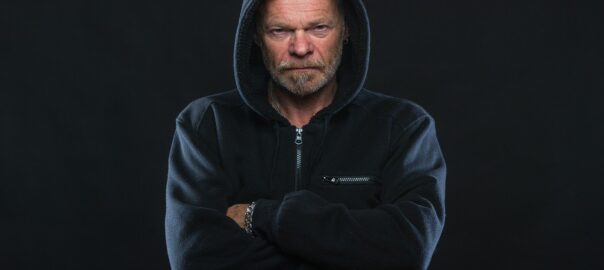Questions of truth have become a fixture of much of our societal discourse for the last few years. From cries of “Fake News!” to YouTube channels full of “experts” explaining the lastest theory or questioning what we know, we are surrounded by questions of truth. This has reached a point that even within a group of people who share culture, background, and setting, there can be profound differences of understanding what is even real. Without a basic shared reality, we begin to find ourselves having trouble maintaining basic civilization.
This present situation is not unique to our time. The Bible addresses these issues well and points us to solutions if we are willing to look to ourselves first. Scripture repeatedly warns about deception, calling us to not be deceived. It warns us that the devil is a powerful deceiver,
And the great dragon was thrown down, the serpent of old who is called the devil and Satan, who deceives the whole world; he was thrown down to the earth, and his angels were thrown down with him.
(Revelation 12:9)
It tells us that other people can deceive us,
Let no one deceive you with empty words, for because of these things the wrath of God comes upon the sons of disobedience.
(Ephesians 5:6)
It also reminds us that we can even deceive ourselves,
If anyone thinks himself to be religious, and yet does not bridle his tongue but deceives his own heart, this man's religion is worthless.
(James 1:26)
We tend to want to apply these verses to others far more than ourselves. We believe that we can’t be deceived. We are smart and in the know. It is the “sheeple”, others who are deceived. Thinking you cannot be deceived is actually a strong sign that you may already have been.
Let no man deceive himself. If any man among you thinks that he is wise in this age, he must become foolish, so that he may become wise.
(1 Corinthians 3:18)
This brings us to the disciple Thomas. Thomas has been used as a negative example, embodied in the phrase ‘doubting Thomas.’ Yet Thomas is not held up by Scripture as a bad example, but a good one. He no doubt would have loved to believe that Jesus wasn’t dead, but he wasn’t prepared to just accept such an improbable thing. In the account, he doesn’t express that it couldn’t happen, but only that he wants to be sure it did happen. In demanding more evidence, he guards himself from being deceived. Jesus appears and satisfies his search for truth.
In the book of Acts, Paul travels from city to city teaching. He is well received in many places, but Luke makes an important statement about the reception of Paul by the people in Berea.
Now these were more noble-minded than those in Thessalonica, for they received the word with great eagerness, examining the Scriptures daily to see whether these things were so.
(Acts 17:11)
Not taking Paul’s word for it, each day they return to the Scripture to see if what Paul is saying is true. This refusal to merely accept teaching from what was surely an authoritative source renders them “more noble-minded.”
We are at our most vulnerable to deception when we are being told what we want to hear. The technical term is confirmation-bias. We look for sources that will reinforce our ideas of what we think is right. We quickly can create a circular loop of reinforcement and confidence. This desire to hear what we already think can blind our eyes and deafen our ears. The disciples, no matter how many times Jesus told them what was going to happen, still did not believe that Jesus could and would die. When he was arrested and sentenced to death, rather than see fulfillment of Jesus’ words, they thought the game was over. It was only later that they finally were able to break through their own beliefs to truly receive what He had told them all along.
The Bible warns,
For the time will come when they will not endure sound doctrine; but wanting to have their ears tickled, they will accumulate for themselves teachers in accordance to their own desires, and will turn away their ears from the truth and will turn aside to myths.
(2 Timothy 4:3-4)
Too many “conservative Christians” have long used this verse for “liberals.” In framing the verse that way, they again affirm that they themselves are too smart, too holy, too Biblical to be deceived. Yet this tendency to find “teachers in accordance to their own desires” is not limited to any one group of people.
I was raised in a home where the truth of the Bible, and the Christian faith was not universally accepted as true. I learned traditional Genesis in church and watched Carl Sagan at home with my science teacher father. I was presented with vastly different presentations of what was “true.” I was also taught to think critically, to examine evidence, and to question assumptions, especially my own. Unlike many who grew up in a “Christian home” I was not indoctrinated, but instead had to think, question, and examine.
Today I am a pastor, minister of the Good News, and teacher of the Bible. God’s truth was more than a match for hard questions, doubt, and even skepticism. To this day, in my understanding of science, politics, faith, and the Bible, I seek out voices that not only don’t say what I want to hear, but explicitly say things that I am not comfortable with and don’t want to believe. If the truth is The Truth, than it will more than prevail against such inquiry. Doing this has helped expose to me areas where my interpretation of certain things was embedded in cultural assumptions or personal biases. It has also made me far MORE convinced in the fundamental truth of the Scriptures, inspired by God. My faith has been affirmed and strengthened more through this than simply piling up teachers telling me what I want to hear.
In this day and age, we need to step away from trying to appear so wise, always looking for the “hidden wisdom” of conspiracy theories or surrounding ourselves with sources and teachers that tell us that we are the right and good ones, smarter than all the rest. Rather than closing our eyes and ears to other perspectives, information, and ideas, we need to pull them out, examine then repeatedly and cautiously, being extra guarded toward things that seem to confirm our biases. We all can be deceived in small or large ways. Humility, questioning, and an eye firmly on the simple and clearly revealed truths of Scripture, especially the central command to “love one another, as I [Christ] has loved you” will help us enter into a more shared reality and be both salt and light in this world.
Love is patient, love is kind and is not jealous; love does not brag and is not arrogant, does not act unbecomingly; it does not seek its own, is not provoked, does not take into account a wrong suffered, does not rejoice in unrighteousness, but rejoices with the truth;
(1 Corinthians 13:4-6)








